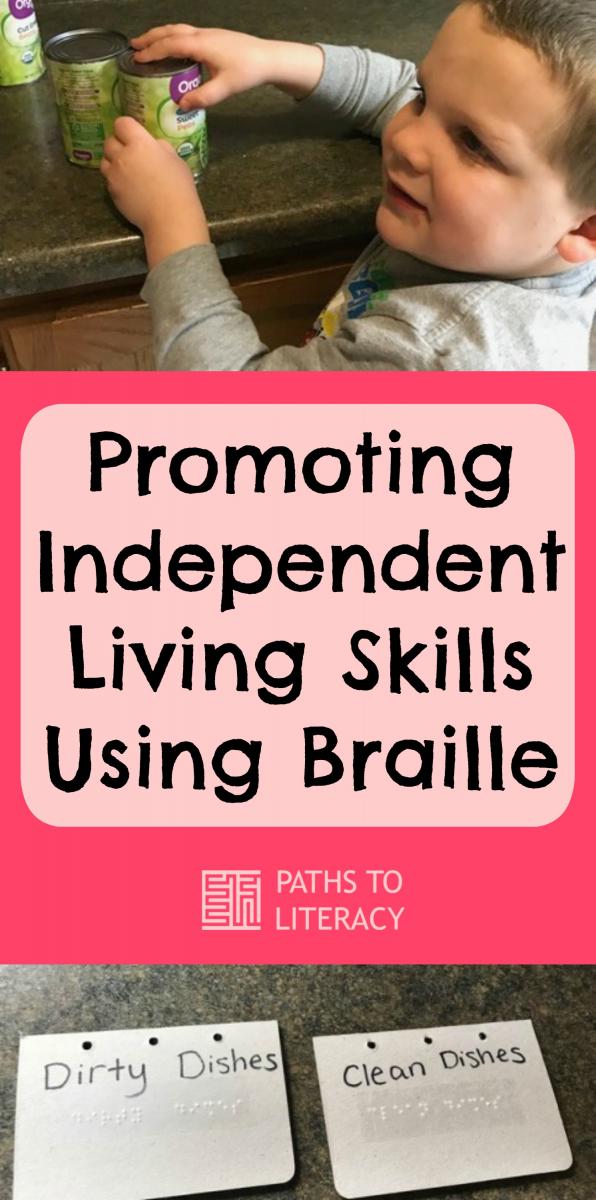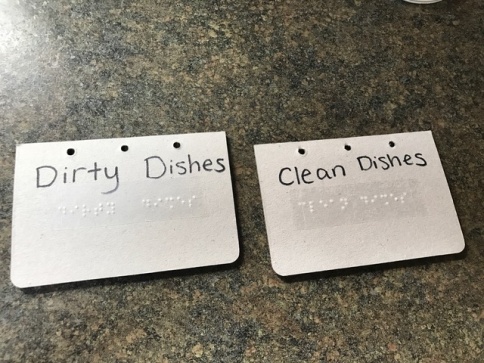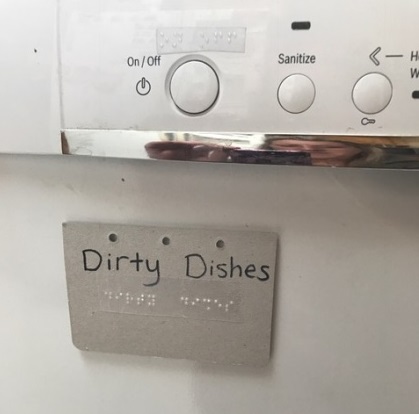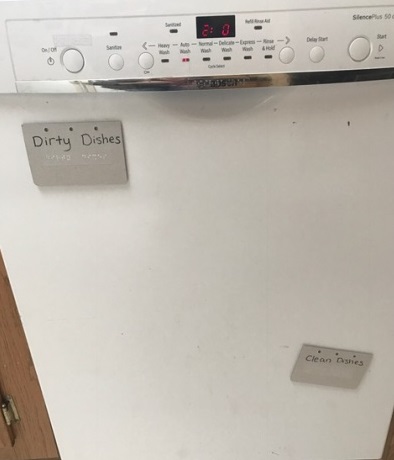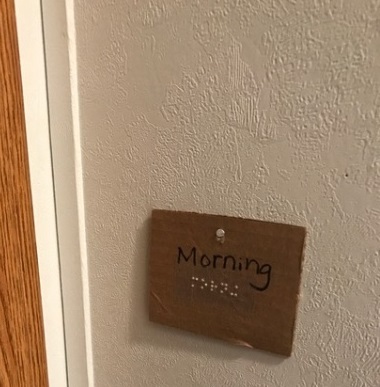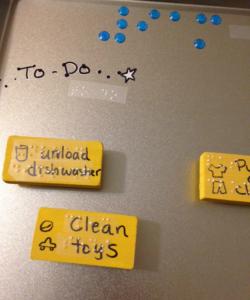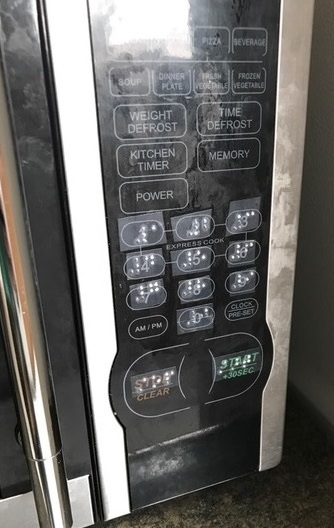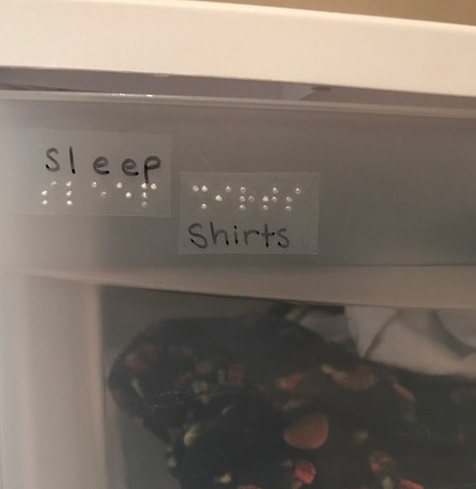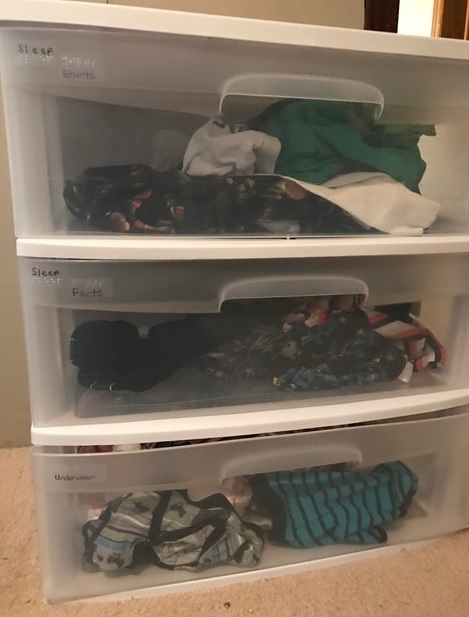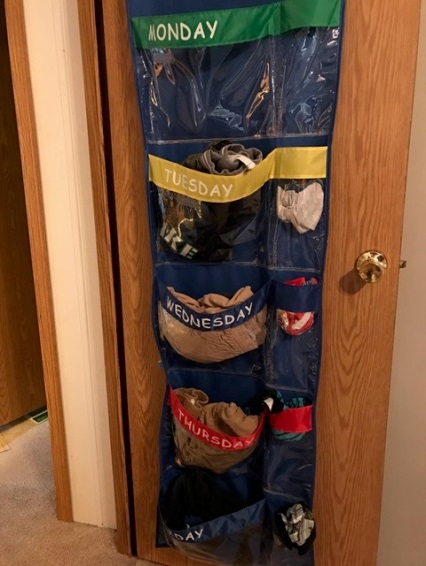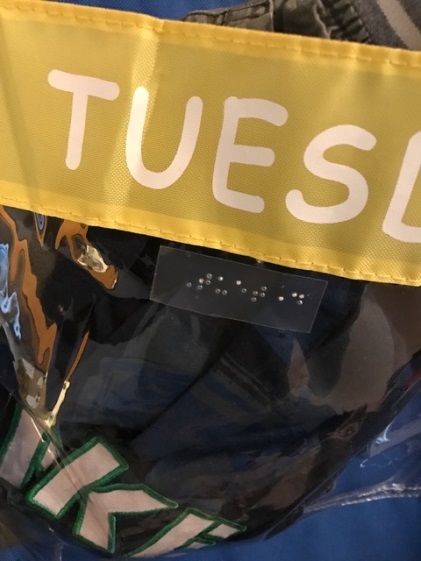Promoting Independent Living Skills Using Braille
Submitted by Liamsmom on Apr 15, 2017
Learning independent living skills starts at home! My son Liam is in second grade and is deafblind. I continually think of ways that he can help out around the house and do everyday tasks as independently as possible. Of course I think of ways that I can incorporate braille as well. I do this partly because it's my job to help him become an independent and responsible boy, but also in part because he is the one that insists on doing things by himself and helping mom. He keeps me on my toes trying to research and invent ways to make these tasks accessible.
Labeled Cupboards:
Our cupboards are labeled. This helps Liam know how to put the dishes in the correct place when cleaning up and also when he is helping to set the table. You can read more about how we did this in Independence in the Kitchen: Braille Your World.
Dishwasher:
Because the cupboards are labeled and organized at his reach, Liam and his brother unload the dishwasher as part of their daily responsibility. If there are items that go on the top shelf they leave them in a nice pile on the counter and I put them away. Of course the dishwasher is also labeled in braille.
I also added braille labels attached to magnets to place on the door of the dishwasher to let Liam know if the dishes in the dishwasher are clean or dirty (nice tip I heard from a friend who visited the Helen Keller Institute). Now he can also put dirty dishes away and know if they are clean or dirty. Without these labels Liam would want to grab a cup out of the dishwasher and now knows if they are clean or dirty.
I put the magnet that is not being used towards the bottom of the dishwasher.
Wake up times on door:
Liam is learning how to tell time at school and we also talk about time a lot at home. Once in awhile Liam will wake up in the middle of the night and think it is time to wake up. I put a sign on his door that states "Night" and the other side states "Morning" in braille. This way Liam can feel the sign and know if it is okay to wake up or not. We are currently waiting for the refreshable braille watches to become available because his school is planning to purchase one for him and then we will buy one for home as well. Once he has his watch, he will be able to tell the time himself, so that he knows when to wake up.
Job Chart: Accessible job chart including braille
An accessible job chart enables Liam to be included in the responsibility of "pitching in" and helping to keep the house clean.
Microwave:
Liam is able to independently find the can of vegetables (that he helped label in braille!) we are having for dinner and get them out pantry. Read more about this in an earlier post: 10 Ways to Encourage Writing at Home and to Make It Meaningful.
I help him open them (it's hard for him to turn the can opener, I may start looking for an automatic can opener) and he pours them into the bowl and places them in the microwave independently. He is able to push the correct number of minutes on the microwave because braille labels have also been added to the microwave. Liam loves the microwave.
Labeling Clothing Storage:
Liam has a clothing organizer that hangs on his door (found the idea for the door hanger on Wonderbaby). I added labels in braille by the days of the week. Every Sunday he helps me pick out outfits for the school week and he places the clothing in the organizer so that he can pick out the clothes by himself on school day mornings. He also has a three drawer plastic organizer in his room for his pajamas. The drawers are labeled: shirts, pants and underwear. When laundry is finished he puts away his own pajamas and puts them in the correct drawers. At bed time he also can go and pick out his own pajamas and put them on by himself.
My goal for this summer is to get another dresser to organize his day clothes so that he can fold them and put them away himself. The drawers of course will also be labeled in braille.
Having braille in strategic places around the house enables Liam to participate actively in the daily routines of the household and to learn critical independent living skills from a very young age.
